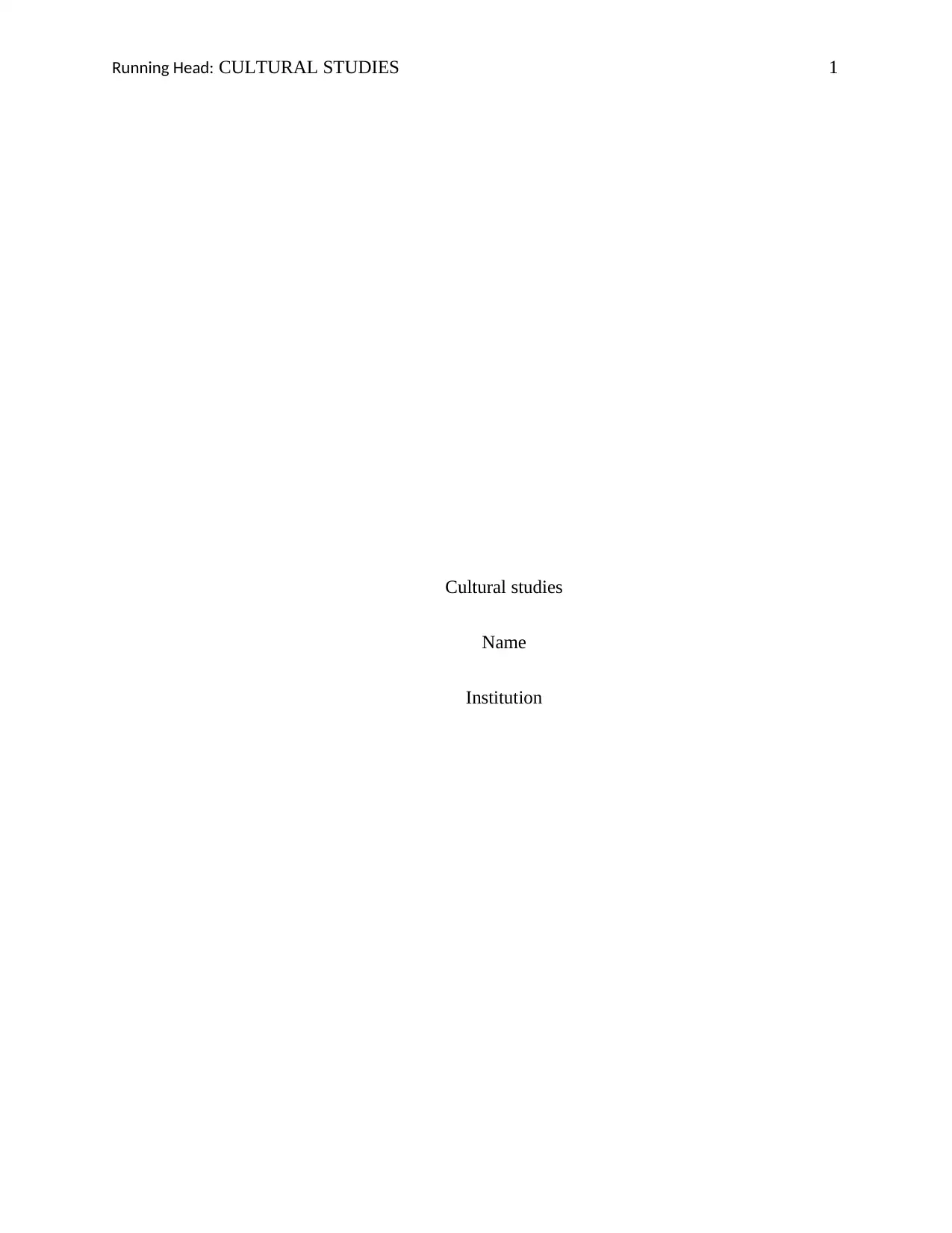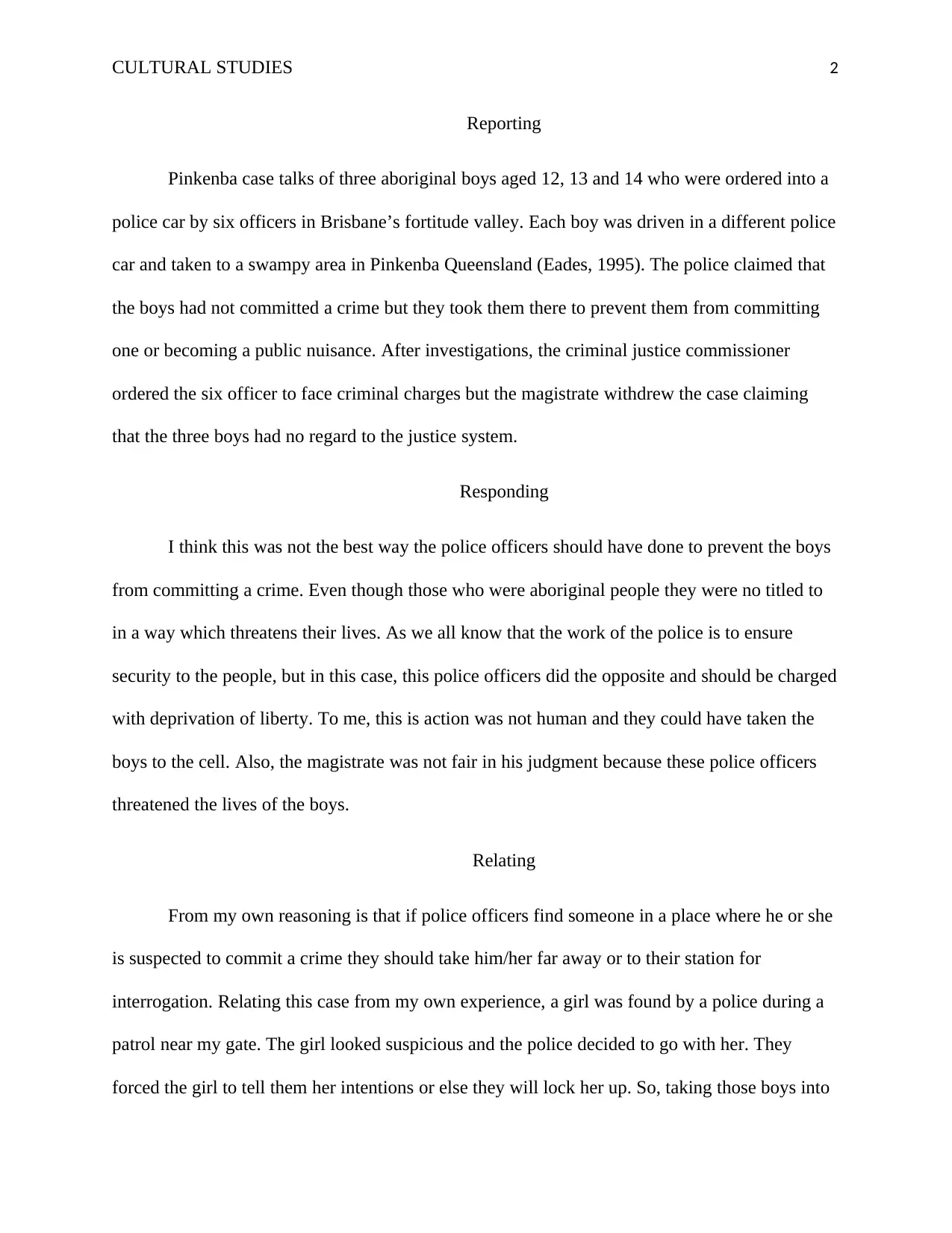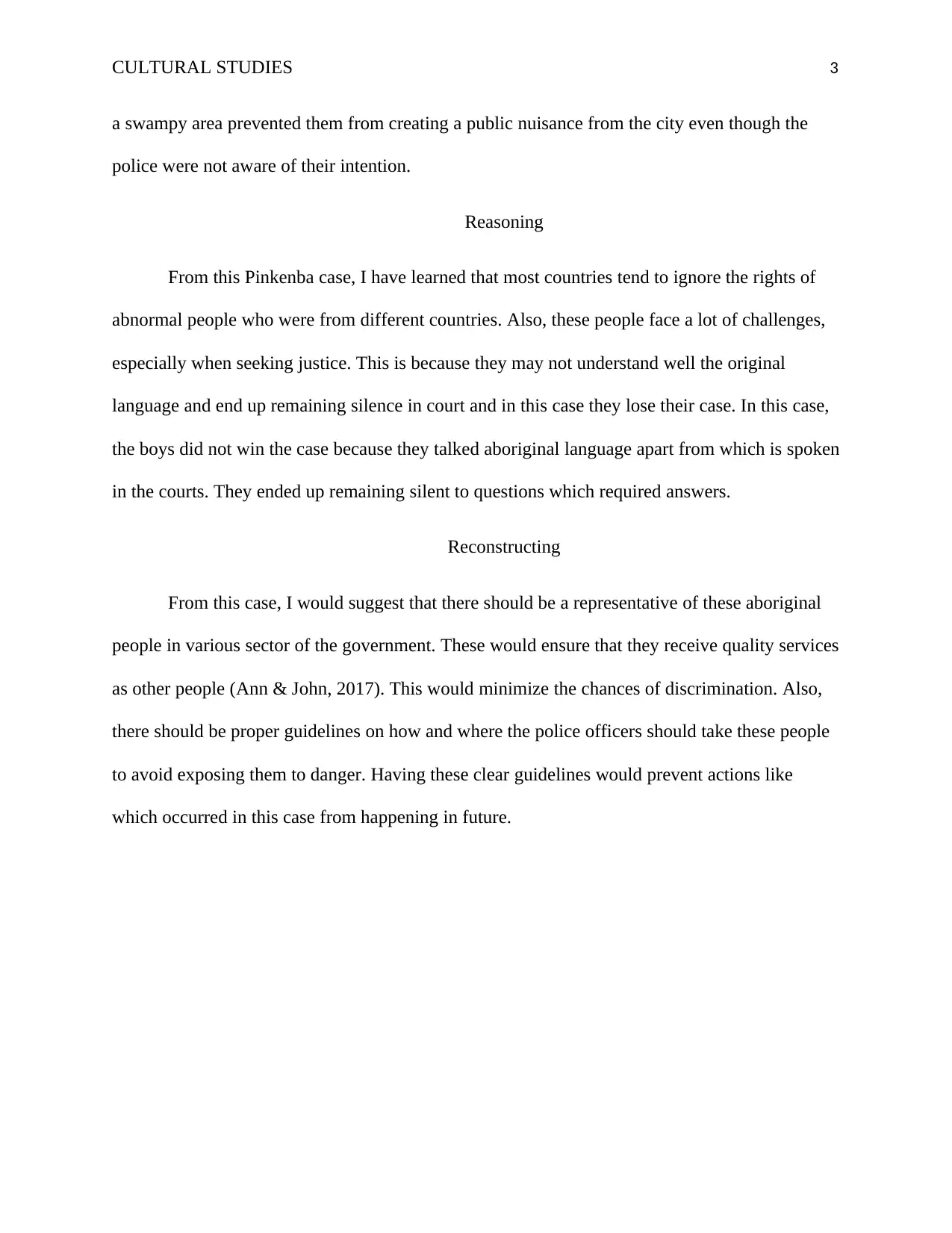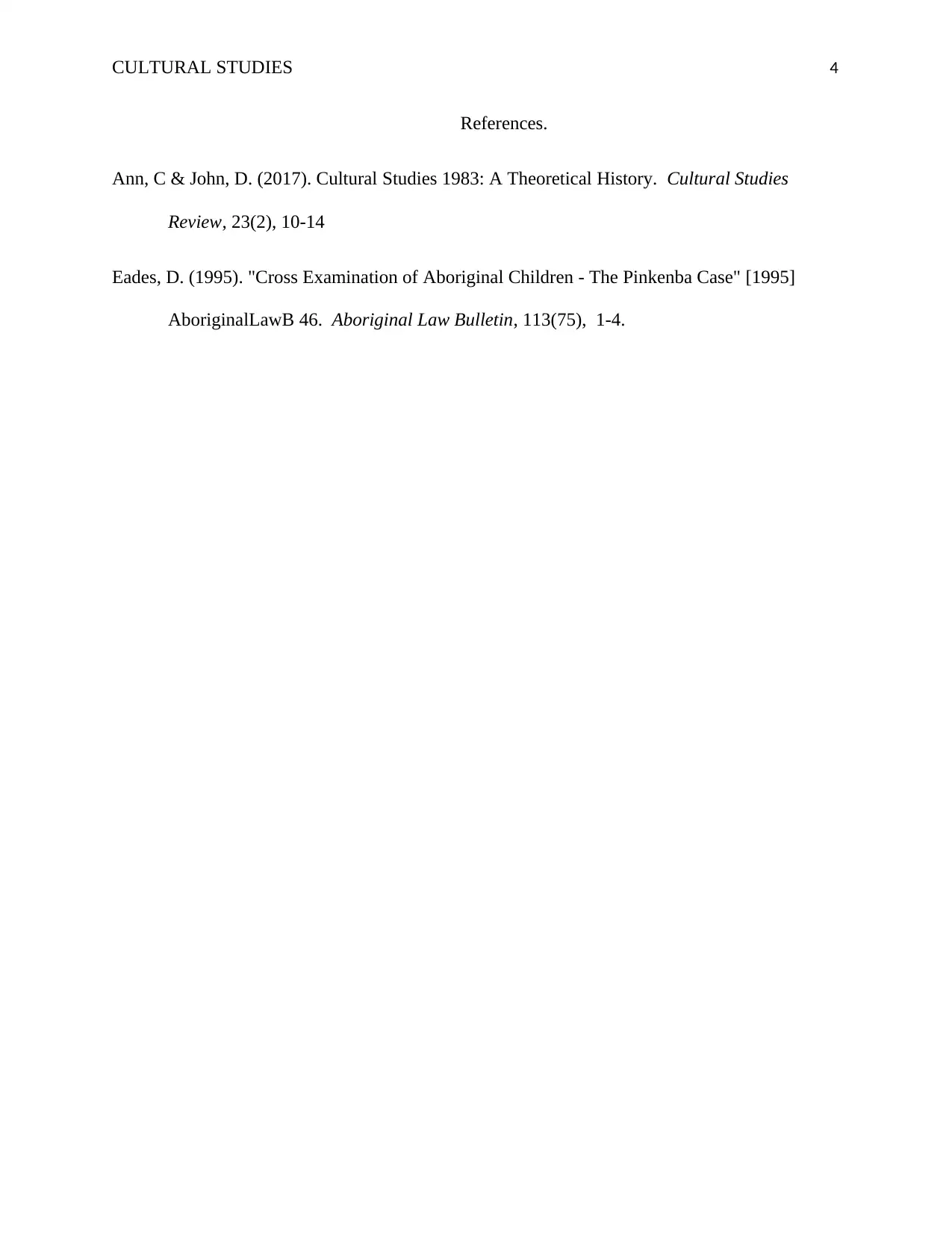Cultural Studies: Pinkenba Case of Aboriginal Boys and Police Brutality
VerifiedAdded on 2023/05/31
|4
|644
|205
AI Summary
This article discusses the Pinkenba case of three aboriginal boys who were taken by police officers to a swampy area in Queensland. It highlights police brutality and the need for representation of aboriginal people in various sectors of the government.
Contribute Materials
Your contribution can guide someone’s learning journey. Share your
documents today.
1 out of 4










![[object Object]](/_next/static/media/star-bottom.7253800d.svg)